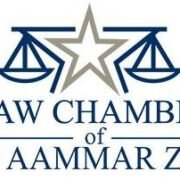Best Faith-Based Law Lawyers in India
Share your needs with us, get contacted by law firms.
Free. Takes 2 min.
Or refine your search by selecting a city:
List of the best lawyers in India
About Faith-Based Law in India
Faith-Based Law in India refers to the legal framework that governs religious practices and the personal affairs of individuals belonging to different religious communities. India, being a multi-religious country, has several personal laws that cater to specific communities, including Hindu, Muslim, Christian, Parsi, and Jewish communities. These laws regulate matters such as marriage, divorce, inheritance, adoption, and religious practices. The Indian legal system strives to balance secular principles with religious autonomy, ensuring that personal laws align with fundamental human rights.
Why You May Need a Lawyer
There are various situations where individuals may require legal assistance in the area of Faith-Based Law in India. Some common scenarios include:
- Disputes related to marriage or divorce under religious personal laws.
- Inheritance or succession issues under Hindu or Muslim laws.
- Adoption procedures that correspond to specific religious guidelines.
- Challenges concerning religious freedom rights or religious property disputes.
- Interpretation and application of religious laws in talaq (divorce) cases.
- Legal support in cases arising from conversion or apostasy.
- Clarification of rights and obligations under religious codes.
- Negotiations or disputes involving religious trusts or institutions.
Local Laws Overview
Indian Faith-Based Law encompasses a range of local statutes and regulations pertinent to religious communities. Key aspects include:
- Hindu Personal Law: Governed by the Hindu Marriage Act, Hindu Succession Act, and other codes regulating civil matters like marriage, divorce, and property rights.
- Muslim Personal Law: Primarily governed by the Muslim Personal Law (Shariat) Application Act, focusing on marriage, maintenance, and inheritance.
- Christian Personal Law: Covering marriage and divorce through the Indian Christian Marriage Act and the Divorce Act.
- Parsi Personal Law: Governed by the Parsi Marriage and Divorce Act.
- Jewish Personal Law: While not statutorily codified, Jewish personal matters sometimes draw from customary laws.
- Special Marriage Act: Provides a secular option for interfaith marriages and addresses both marriage and divorce.
- Religious Freedom: Articles 25-28 of the Indian Constitution ensure the right to freedom of religion and manage associated issues.
Frequently Asked Questions
What is Faith-Based Law?
Faith-Based Law refers to the body of laws that govern personal and religious practices within specific communities based on their faith.
Can I choose which personal law to follow?
In most cases, Indian citizens must follow the personal law corresponding to their religion, as determined by birth. However, the Special Marriage Act offers a secular alternative for marriage.
Is conversion to another religion legally recognized?
Yes, but the process of conversion must be genuine, voluntary, and not forced or fraudulent. Legal consequences, such as changes in applicable personal laws, may arise post-conversion.
How are interfaith marriages governed in India?
Interfaith marriages can be solemnized under the Special Marriage Act, which provides a legal framework separate from religious personal laws.
What is the procedure for divorce under Muslim law?
Divorce under Muslim law can occur through mutual consent (Khula or Mubaraat) or unilateral pronouncement by the husband (Talaq). Legal provisions ensure adherence to due process.
Are maintenance rights different under various personal laws?
Yes, maintenance rights and obligations can vary between different religious personal laws. The legal framework attempts to ensure fairness, although interpretations may differ.
Can personal law be challenged if it violates fundamental rights?
Personal laws can be contested in court if they are perceived to infringe upon fundamental rights, although such challenges may face significant legal and cultural complexities.
Does the Indian legal system recognize polygamy?
Polygamy is permissible under certain personal laws, such as Muslim law, subject to legal stipulations, but is prohibited under others, like Hindu personal law and the Special Marriage Act.
How is inheritance managed under Faith-Based Law?
Inheritance laws vary considerably based on religion. Hindu Succession Act, Muslim Personal Law, and Christian succession laws govern these matters for respective communities.
What role do Panchayats play in Faith-Based Law?
Panchayats (traditional councils) often provide informal dispute resolution in religious or community matters, but their decisions are subject to Indian law and judicial scrutiny.
Additional Resources
For those in need of more information or assistance regarding Faith-Based Law in India, the following resources may be helpful:
- The Legal Services Authority: Offers free legal aid and information.
- National Commission for Minorities: Addresses issues faced by religious minority communities.
- Ministry of Minority Affairs: Provides guidance and policies for religious communities.
- Local Bar Associations: Often have specialist lawyers in personal and religious law.
- Legal Aid Clinics: Run by law schools and non-profits to give free advice and assistance.
Next Steps
If you need legal assistance in the field of Faith-Based Law, consider the following steps:
- Identify the specific legal issue related to your faith or personal circumstances.
- Consult with a lawyer who specializes in Faith-Based or personal law.
- Gather all relevant documents, such as marriage certificates, wills, or religious documents.
- Visit a legal aid clinic for initial guidance or free consultation if you are unable to afford private legal services.
- Contact a local bar association for referrals to experienced faith-based law practitioners.
- Keep informed about changes in personal laws and legal precedents by following reliable legal resources.
Lawzana helps you find the best lawyers and law firms in India through a curated and pre-screened list of qualified legal professionals. Our platform offers rankings and detailed profiles of attorneys and law firms, allowing you to compare based on practice areas, including Faith-Based Law, experience, and client feedback.
Each profile includes a description of the firm's areas of practice, client reviews, team members and partners, year of establishment, spoken languages, office locations, contact information, social media presence, and any published articles or resources. Most firms on our platform speak English and are experienced in both local and international legal matters.
Get a quote from top-rated law firms in India — quickly, securely, and without unnecessary hassle.
Disclaimer:
The information provided on this page is for general informational purposes only and does not constitute legal advice. While we strive to ensure the accuracy and relevance of the content, legal information may change over time, and interpretations of the law can vary. You should always consult with a qualified legal professional for advice specific to your situation.
We disclaim all liability for actions taken or not taken based on the content of this page. If you believe any information is incorrect or outdated, please contact us, and we will review and update it where appropriate.
Browse faith-based law law firms by city in India
Refine your search by selecting a city.














